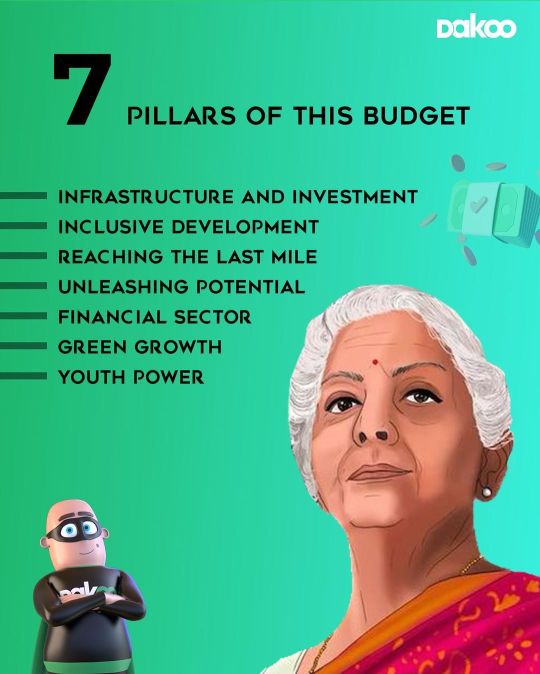#FinancialSector
Text
youtube
InvestTalk - 11-1-2023 – Banking Sector Overview: Is the Financial Sector 'Uninvestable'?
This theory's justification emphasizes two key issues: margins and rules.
0 notes
Text
youtube
Today, everyone is opting for digital payments. Card and cash payments are decreasing. In terms of digital payments, India is surpassing the leading countries in the world. You can gauge the popularity of UPI payments from the latest figures. With the increasing craze for UPI payments, mobile transactions are getting a boost. People consider UPI as the top choice for digital payments. Amidst the rapid growth in India's digital payments, FY 2023-24 witnessed significant growth in UPI transactions compared to the previous year. According to transaction numbers, there has been a 56% growth in UPI transactions, and in terms of valuation, there has been a 43% increase. This is the first time that UPI transactions have crossed the mark of 100 billion. In the fiscal year 2023-24, transactions through UPI reached 131 billion, compared to 84 billion in the fiscal year 2022-23.
हमारे Channel का प्रयास है हर निवेशक को सही निवेश की राय देना। आज ही इस चैनल को Like और Subscribe करें। Follow us on: YouTube: https://youtube.com/@indianewsbusiness Twitter: https://twitter.com/indianewsbiz Facebook: https://www.facebook.com/indianewsbus... Official Website: https://indianewsbusiness.com/
#indianews#IndiaNewsBusiness#DigitalPayments#UPI#Demonetization#COVID19#CashlessIndia#MobilePayments#Fintech#FinancialInclusion#India#Economy#DigitalTransformation#FinancialTechnology#UPIPayments#UPITransactions#UPIGrowth#UPIValuation#CashlessEconomy#IndianEconomy#DigitalIndia#FinancialServices#FinancialTech#UPIRevolution#OnlinePayments#TransactionTrends#FY2023_24#CashlessTransactions#DigitalTransactions#FinancialSector
0 notes
Text
10 Types of Financial Services Available in India

Since 1990, the Indian financial services industry has undergone a transformation. Commercial banks and other financial institutions dominated the field prior to its emergence, meeting the financial needs of the Indian industry. Only after economic liberalization did the financial services sector gain prominence. This sector has now evolved into an industry. In fact, the financial services industry is now one of the world's largest. Financial services are an important component of the financial system. A modern economy is built on financial services.
The Definition of Financial Services
In general, all financial-related activities can be classified as financial services. Financial services, in a broad sense, refer to the mobilization and allocation of savings. As a result, it encompasses all activities involved in the conversion of savings into investments. Financial services are those offered by the finance industry. The finance industry includes a wide range of organizations that deal with money management. Banks, credit card companies, insurance companies, consumer finance companies, stock brokers, investment funds, and some government-sponsored enterprises are among these organizations.
To Read This Full ARTICLE, Click Here
0 notes
Text
Banking Leaders Express Concerns Over Rising Geopolitical Uncertainty
V

Prominent figures in the global banking sector have raised alarm bells over the potential threat of a financial crisis stemming from increasing geopolitical uncertainty and regulatory tightening. These concerns were voiced during the Global Financial Leaders Investment Summit, hosted by the Hong Kong Monetary Authority, where more than a dozen top executives from international financial institutions gathered to discuss the evolving landscape of the financial sector.
Challenges to Democracy
James Gorman, Chairman and CEO of Morgan Stanley, pointed to the geopolitical arena as a likely trigger for the next global financial crisis. He emphasized the challenges to democracy in various countries worldwide but did not delve into specifics. The ongoing Israel-Gaza conflict and the prolonged Russia-Ukraine war, coupled with simmering tensions between the United States and China, have added to the atmosphere of uncertainty that surrounds the global economic outlook.
Christian Sewing, CEO of Deutsche Bank, expressed concerns that the markets, though resilient in the face of global events so far, could become more susceptible to geopolitical escalations. Sewing emphasized that a sudden geopolitical incident could disrupt the prevailing market calmness, leading to a market event.
Reflecting on the 2008-2009 global banking crisis, policymakers on both sides of the Atlantic moved quickly in March to prevent a potential re-run of the crisis. Swiss authorities played a pivotal role in brokering UBS’s rescue of ailing rival Credit Suisse, a deal praised by the European Central Bank for its role in reassuring markets.
Rising geopolitical uncertainties could trigger next financial crisis, warn global bankers
youtube
The situation on a global level
Global banks have found themselves in a precarious situation, with central banks temporarily pausing interest rate increases. The ongoing geopolitical tensions, including conflicts in the Middle East and Ukraine, have further complicated the macroeconomic outlook, making it challenging to predict future economic growth, asset valuations, and market volatility.
In an unusual show of solidarity, the leaders of global banking institutions voiced their concerns at the Asia summit, objecting to a set of stricter banking rules known as the “Basel Endgame.” These regulations, implemented in July, would require banks to set aside additional capital as a safeguard against risks.
Skepticism about the rules
David Solomon, CEO of Goldman Sachs, expressed skepticism about the rules, believing they could result in economic tightening at a time when it is not in the best interest of economic growth. The U.S. banking regulator has also proposed stringent capital rules for major banks in response to runs on smaller banks earlier this year, a move that has been met with resistance from the industry.
Colm Kelleher, Chairman of UBS Group, raised concerns about the so-called shadow banking sector, where an increasing volume of global assets is managed. He suggested that the next financial crisis might emerge from this sector. According to Kelleher, the policy objective should be to limit the size of large banks, but he cautioned that the least competitive players might falter when the system faces pressure.
Curious to learn more? Explore our articles on Enterprise Wired
#BankingLeaders#GeopoliticalUncertainty#FinancialCrisis#RegulatoryChanges#GlobalEconomy#EconomicOutlook#FinancialSector#FinanceSummit#Youtube
0 notes
Text
एयर इंडिया के महत्वपूर्ण वित्तीय लेनदेन | गिफ्ट सिटी के साथ संबंध
एयर इंडिया ने शुक्रवार को बताया कि उसने गिफ्ट सिटी के माध्यम से पहले 350-900 विमान का अधिग्रहण पूरा कर लिया है। यह अधिग्रहण वित्तीय पट्टा लेनदेन के माध्यम से एचएसबीसी के साथ किया गया है। गिफ्ट सिटी के माध्यम से पहला चौड़ी बॉडी वाले विमान का पट्टा है। एयर इंडिया ने एक बयान जारी … Read more
#AirIndiaTransactions#FinancialDealings#GiftCityPartnership#EconomicRelations#FinancialNews#InvestmentOpportunities#AirIndiaDeal#GiftCityCollaboration#FinancialSector#EconomicAlliance
0 notes
Text
Vision of the Future by Lado Okhotnikov
The realm of futuristic trends consistently garners great interest and provides an exciting glimpse into what the future holds for us in various industries of business and finance. This article offers an analysis of technological advances and social shifts. Based on this, we can paint a vivid picture of what lies ahead, imagining the potential of artificial intelligence and automation.

Additionally, the article touches upon the impact of blockchain technology on finance, demonstrating how it can disrupt traditional financial systems and create more transparent and secure transactions. Blockchain-based decentralized metaverses create spaces that cannot be influenced by external forces, not even their creators. They only obey the laws set by smart contracts.
My team is creating such a special digital space focused on business development. Meta Force allows you to manage your projects with complete protection from the outside world. It is impossible to deceive, block, or steal; only honest work is encouraged.
#Futuretrends#Technologicaladvances#Sustainabledevelopment#AI#Blockchainrevolution#BusinessInnovation#Financialsector#Environmentalissues#Transformation#LadoOkhotnikov#MetaForce
0 notes
Text
Abstract:The Financial Sector Conduct Authority (FSCA) warns the public about Solitix FX (Pty) Ltd and Mr Kevin Banks, urging caution in engaging with these entities for financial services-related activities due to their unlicensed status.
0 notes
Text
📈Looking for easy mortgage loans?

Good news! They're now available for all business owners up to 120% of property value, with no hassle of audit financials.
Don't miss out on this opportunity!
CLICK ON THE LINK to inquire now with the best mortgage consultant broker in Dubai, UAE in 2023.
✅ Inquire Now: https://moneymatters.ae/best-mortgage-consultant-broker-in-dubai-uae-in-2023/
📞 Call +971 4 585 0565 or +971 50 858 0600 to know more and apply in just a few easy steps.
Trusted mortgage consultancy in UAE
#businessloans#mortgagebroker#propertyfinance#financialservices#dubaifinance#businessgrowth#realestate#investment#mortgageloans#propertyinvestment#entrepreneur#smallbusiness#moneytalk#UAEfinance#mortgages#UAEbusiness#UAErealestate#businessfinancing#UAE#financialsector#money#mortgageconsultancy#Mortgages#MoneyMatters#property#realtor#finance#business#mortgage
1 note
·
View note
Text
Top Banks in Belgium: Powerhouses of Stability and Financial Excellence
Belgium, located in the heart of Europe, is renowned for its thriving economy and strong financial sector. The country's banking industry is characterized by stability, reliability, and a commitment to customer satisfaction. In this article, we will explore some of the top banks in Belgium, highlighting their strengths, services, and contributions to the nation's financial landscape.
KBC Group:
KBC Group stands as one of Belgium's largest banking and insurance groups, offering a broad range of retail, corporate, and investment banking services. With a focus on customer-centricity, KBC provides tailored solutions to individuals, families, and businesses. Its dedication to innovation and digitalization has made it a leader in Belgium's banking sector.
BNP Paribas Fortis:
As part of the global banking giant BNP Paribas, BNP Paribas Fortis is a prominent player in the Belgian financial market. It offers a comprehensive range of banking services, including retail banking, corporate banking, and wealth management. The bank's strong presence and extensive branch network make it easily accessible to customers across the country.
ING Belgium:
ING Belgium, a subsidiary of the Netherlands-based ING Group, is a leading bank in the Belgian market. It focuses on providing seamless digital banking experiences to its customers, combined with personalized advice and support. ING's user-friendly mobile and online banking platforms have earned it a loyal customer base and a reputation for convenience and innovation.
Belfius Bank:
Belfius Bank, a Belgian retail bank, operates with a clear mission of serving the public sector, social housing organizations, and retail customers. The bank's commitment to sustainable development and corporate social responsibility is evident in its financing initiatives for renewable energy projects and its support for local communities. Belfius also offers a wide range of banking and insurance services tailored to the needs of its customers.
Crelan:
Crelan is a cooperative bank that focuses on agricultural and rural communities in Belgium. It provides a range of banking, insurance, and wealth management solutions tailored to the specific needs of farmers, entrepreneurs, and individuals in rural areas. Crelan's cooperative structure ensures a strong connection with its customers and a commitment to supporting local communities.
Bpost Bank:
Bpost Bank, a subsidiary of Belgium's national postal service, is known for its accessibility and simplicity. The bank's services are designed to be user-friendly, making banking accessible to a wide range of customers. Bpost Bank combines traditional banking with the convenience of postal services, offering a unique and customer-centric approach.
Conclusion:
The top banks in Belgium are at the forefront of the country's financial landscape, providing stability, reliability, and innovative solutions to their customers. Whether it's catering to individuals, businesses, or specific sectors, these banks have demonstrated their commitment to customer satisfaction and societal well-being. As Belgium continues to thrive economically, its banking sector will undoubtedly play a crucial role in driving growth and prosperity in the years to come.
0 notes
Text
Understanding How Banks Operate: Money & Debt

Understanding how banks work is an eye opener for most people. Did you know that up until 1844 in Britain banks in the UK printed their own paper cash money – these were called bank notes, of course. Banks still today make their own money. Every time someone borrows money from a bank the bank extends credit by creating money in that person’s account by pushing a button. No physical money is actually created. The debt creates that money and when the loan is paid back that money ceases to exist. The banks pockets the interest charged on the loan and erases the debt. That digitally created money disappears from the system. Understanding how banks operate: Money and debt.

Photo by David Peterson on Pexels.com
Banks Just Create Money Out Of Debt
Money is created via debt. Banks create this digital money when they lend funds to businesses and individuals. Thus, creating money has nothing to do with savings. The trillions of dollars or euros or pounds in the global economy are not created via making things, selling them, and saving the money generated. The trillions are created out of debt and extending credit. Something like only 3% of the money in the global economy is not created from debt. Banks are responsible for our supply of money in the economy. They in turn are under the aegis of a central bank, like the Reserve Bank of Australia, Federal Reserve in the US, and Bank of England in the UK.
https://youtu.be/myM44zZxy5Y
Credit Fuels The Money Supply Via Banks
Money used to be pegged to gold reserves back in the day. This is no longer the case since 1971 and the collapse of the Breton Woods system. Money supply has been foot loose and fancy free ever since. The bulk of business done by banks In Australia is from the mortgage market on loans for residential property. The banks create this money when they lend to borrowers, which increases the supply of money into the economy via debt. Houses are the single largest purchase that most consumers ever make in their lifetime. Thus, all this money fuels inflation in the housing sector, which we have seen in Australia over the last 35 years. Property prices have gone up by a whopping 382% over the last three decades. In fact, it is much higher. My family bought a suburban house in the late 1970s for around $37K and that property sold for around $900K in 2020. The same house with no real improvements made to it or the property. The RBA does not include house prices in its definition of inflation, thus nobody talks about the huge inflation in this sector of the economy. Those who have bought into the property market and benefited from the huge gains in property prices are big fans of it. Those who are locked out because of the hugely inflated prices are not so happy.

Photo by Kindel Media on Pexels.com
The important thing to understand here, however, is that the money supply is greatly increased by the enormous debt raised via the banks’ lending to this sector. Remember money is created via debt. So, vast amounts of money are being pumped into the Australian economy by this process. This is non-GDP generated money. This is money created via bank speculation in lending money to prospective investors and home owners. It is not money created out of manufacturing anything. This is why houses are getting more and more expensive every year. More money supply creates inflation, this is a well-known economic principle. Many people are going on about a shortage of housing and there may well be some truth to this but this is not the main driver for the inflation in the property sector. Rather, it is the very nature of how the banking system works in Australia and globally, and how it interacts with the housing market.
https://www.youtube.com/watch?v=yLZUVsmUwZY
Understanding how banks operate: Money and debt. This money has been created out of nothing and it expands the perceived wealth of nations like Australia. This wildly inflated housing market is not linked to the recognised inflation rate and so goes unremarked upon. It creates societal power on the back of inflated wealth with no basis in GDP linked activity. Australia has become a nation with very little manufacturing going on. A country that makes bugger all. A place where inflated property prices are some of the highest in the world.

Photo by Pixabay on Pexels.com
Understanding how banks operate: Money and debt are inextricably linked. Banks make their profits by creating money and lending it out to individuals and businesses. Speculation is far by the main activity of commercial banks and the supply of money in the global economy has increased exponentially on a massive scale. This is how the economic system works. Banks, especially big banks are never allowed to fail because of their place in how money supply works. Banks have accounts with the central bank like the RBA and these are used to transfer funds between them. During the global pandemic the RBA purchased government bonds to the tune of some $100 billion. This was done via the commercial banks under its aegis – their reserve accounts with the central bank were credited with this money. This process is called quantitative easing (QE) and has been done by central banks globally, especially in response to the 2008 Global Financial Crisis (GFC) and the Coronavirus pandemic. The RBA claims that this increase to money supply is not inflationary because it is held in reserve rather than directly pumped into the economy.
As of 2022 and beyond, there has been global high inflation and a cost of living crisis for the working poor and those on welfare. The RBA, has a recognised inflation target rate of 2-3%. Inflation has been up at 7-8% in Australia and higher in the US and UK and Europe. Interest rates, which had been at record lows for the decade since the GFC, at around 0.3% or lower, were rapidly raised by central banks around the world. Monetary policy implemented by central banks raises the cash rate to make credit more expensive. This makes lending less attractive and thus reduces money supply growth on this basis. The RBA has now embarked upon quantitative tightening (QT), which involves:
“At its meeting earlier this month, as well as raising the cash rate target, the Board decided not to reinvest the proceeds from bonds as they mature from the Bank's portfolio. This signals the next phase in the bond purchase program. The initial phase in which the Bank built up its stock of bond holdings is often referred to as ‘quantitative easing’, or QE for short. That phase ended in February this year. We have now entered the phase known as ‘quantitative tightening’, or QT. By allowing our bond holdings to gradually diminish over time as they mature, the initial stimulatory effects of those holdings – namely, downward pressure on government bond yields and the Australian dollar exchange rate – will gradually unwind.”
- (RBA Assistant Gov. Christopher Kent, 23 May 2022)
This takes money supply out of the economy and is another anti-inflationary measure on this basis.

Photo by energepic.com on Pexels.com
There are jitters being felt in the financial sector based on the recent spate of failings of US banks. Silicon Valley Bank collapsed after a run on the bank saw it unable to meet its depositors’ requirements. This bank had bought up on government bonds and not kept enough reserves to meet depositor requirements. A Donald Trump lessening of regulatory requirements for mid-tier regional banks had created the environment for this banking crisis. Rising interest rates has seen the return on bond rates fall below parity to tip this bank and others over the edge into collapse after poor financial decisions by their management. Signature Bank and First Reserve Bank are two more on the brink of failure. Credit Suisse is another large financial institution to fall, being swallowed up by UBS in its death throes, in a Swiss banking dance of death. Share prices of these banks have plummeted and rescue packages have attempted to stem the bleeding and more domino’s falling over. The US government has guaranteed depositor funds in a bid to shore up confidence in the banking sector. Little banks can fail without bringing down the whole edifice but no really big banks will be allowed to fail.
Deutsche Bank is now coming under scrutiny from the market. Traders will be actively seeking out any weakness to exploit for their financial gain. Global investors will be eyeing off the exits if they sense any trouble. Deutsche Bank stocks closed down 8% overnight. This bank has more than $1 trillion in assets. Recessions loom for economies around the globe on the back of central banks and their monetary policy fighting inflation. Investors are getting jumpy. Will this be the beginning of the Global Financial Crisis 2.0?
Robert Sudha Hamilton
©Midas Word
Read the full article
0 notes
Text

Are you curious about the world's richest countries and what sets them apart? Look no further! Our latest blog article provides a comprehensive look at the top 7 nations and what makes them stand out. From Qatar's natural gas reserves to Singapore's business-friendly policies, we explore the economic and cultural factors that contribute to their wealth. Learn about the industries driving growth, such as the tech industry in Ireland and the tourism industry in the UAE. With insights on natural resources, social welfare systems, and education systems, this article is a must-read for anyone interested in investing, entrepreneurship, or global affairs. Check it out and start your journey around the world today!
#richestcountries#economicsuccess#naturalresources#businessfriendly#GDPpercapita#financialsector#globalhub#oilandgas#socialwelfaresystem#education#luxurylifestyle#tourismindustry#investing#entrepreneurship#travelgoals#economicgrowth#worldaffairs#noborderfounder#nbf
0 notes
Photo

"Let's work together towards an inclusive future! Reaching the last mile and unleashing the potential of communities requires investments in infrastructure and the financial sector. By promoting green growth and empowering our youth, we can drive positive change and build a better world. #InclusiveDevelopment #GreenGrowth #YouthPower #FinancialSector #work #growth #change #infrastructure #investments #investments #future #dakoo #franchise #business #opportunity #startup #soonunicorn #unionbudget2023 #amritkaal #pmmodi #NirmalaSitharaman (at India) https://www.instagram.com/p/CoHypoxp-4a/?igshid=NGJjMDIxMWI=
#inclusivedevelopment#greengrowth#youthpower#financialsector#work#growth#change#infrastructure#investments#future#dakoo#franchise#business#opportunity#startup#soonunicorn#unionbudget2023#amritkaal#pmmodi#nirmalasitharaman
1 note
·
View note
Text

Restore Freshness and Hygiene: Deep Cleaning Service in Leeds - Leeds Cleaners
Revitalize your space with our thorough deep cleaning service in Leeds. At Leeds Cleaners, we understand the importance of a deep clean to eliminate dirt, grime, and allergens from your environment. Our expert team utilizes industry-leading techniques and environmentally friendly products to reach every corner and surface, ensuring a comprehensive cleaning experience. Whether it's your home, office, or commercial space, our deep cleaning service is tailored to meet your specific needs and exceed your expectations. Trust Leeds Cleaners to restore freshness, hygiene, and comfort to your space with our professional deep cleaning service in Leeds.
#cleaningservicesforcommercialsoffices#cleaningservicesforfactories#cleaningservicesforbar&restaurant#airbnbcleaningservice#cleaningservicesforbanking&financialsector#cleaningservicesforfintechcompanies#cleaningservicesforretailshops#cleaningservicesforhotel#cleaningservicesforhealthcarecenters#cleaningservicesformedicalcenters#deepcleaningservices
0 notes
Text
आरबीआई का निर्देश : क्रेडिट सूचना कंपनियां आंतरिक लोकपाल नियुक्त करें
भारतीय रिजर्व बैंक (आरबीआई) ने गुरुवार को सभी क्रेडिट सूचना कंपनियों को 1 अप्रैल, 2023 तक एक आंतरिक लोकपाल नियुक्त करने का निर्देश दिया है।आरबीआई ने 5 अगस्त, 2022 को अपने विकासात्मक और नियामक नीतियों के वक्तव्य में आंतरिक शिकायत निवारण तंत्र की दक्षता को मजबूत करने और सुधारने के लिए आंतरिक लोकपाल ढांचे के तहत क्रेडिट सूचना कंपनियों को लाने का आह्वान किया था।केंद्रीय बैंक के अनुसार, आंतरिक लोकपाल या तो सेवानिवृत्त या सेवारत अधिकारी होगा, जो किसी वित्तीय क्षेत्र के नियामक निकाय, क्रेडिट सूचना कंपनियों, एक गैर-बैंकिंग वित्तीय कंपनी (एनबीएफसी) या बैंक में उप महाप्रबंधक या समकक्ष के पद से नीचे का नहीं होगा। उसे बैंकिंग, गैर-बैंकिंग वित्त, वित्तीय क्षेत्र के विनियमन या पर्यवेक्षण, क्रेडिट जानकारी या उपभोक्ता संरक्षण में कम से कम सात वर्षो के आवश्यक कौशल और अनुभव रहना चाहिए।नियुक्ति कम से कम तीन साल की निश्चित अवधि के लिए होगी, लेकिन पांच साल से अधिक नहीं होगी।आंतरिक लोकपाल को आरबीआई की स्पष्ट स्वीकृति के बिना अनुबंधित अवधि के पूरा होने से पहले हटाया नहीं जा सकता।यदि रिक्ति नियंत्रण से परे कारणों से उत्पन्न होती है, तो क्रेडिट सूचना कंपनी रिक्ति होने की तारीख से तीन महीने के भीतर एक नया आंतरिक लोकपाल नियुक्त करेगी।आरबीआई ने यह भी कहा कि क्रेडिट सूचना कंपनियों के आंतरिक ऑडिट के आकलन को आंतरिक लोकपाल द्वारा लिए गए निर्णय के आधार प��� दायरे से बाहर किया जा सकेगा।आंतरिक लोकपाल प्रबंध निदेशक या मुख्य कार्यकारी अधिकारी को प्रशासनिक रूप से और बोर्ड को कार्यात्मक रूप से रिपोर्ट करेगा।
Read the full article
0 notes
Text
In the third quarter of the current fisc... #BestFinance #challenges #companies #downturn #economicdownturn #falls #Finance #financecompanies #FinancialPerformance #financialresults #Financialsector #financialstrain #fiscalyear #GorkhasFinance #ICFCFinance #industry #JanakiFinance #loss #ManjushreeFinance #MultipurposeFinance #NepalFinance #netprofit #PokharaFinance #profit #profitdecline #profitability #recovery #sector #shareprices #ShreeInvestment #Significantly #stockmarket #strategicmeasures #thirdquarter
0 notes
Text
Want to learn more about the Financial Sector?
4 notes
·
View notes